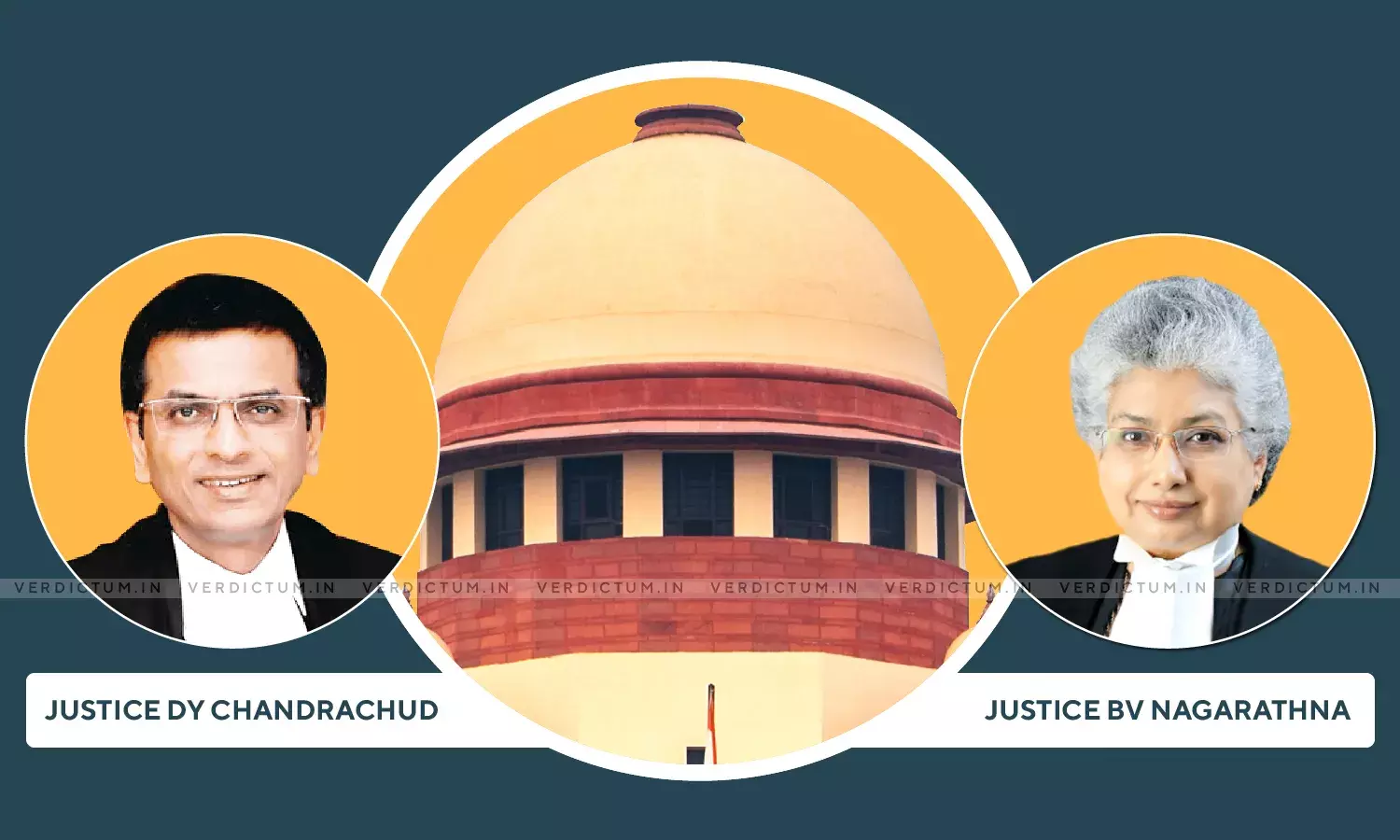High Court Cannot Quash Proceedings Under Section 482 CrPC Merely Relying On Draft Chargesheet: Supreme Court

A two-judge Bench of Justice DY Chandrachud and Justice BV Nagarathna has held that the High Court committed an error in entertaining petitions filed under Section 482 CrPc at the behest of persons who were not even named in the FIR but only in the draft chargesheet.
The Court also held, "Even before the charge-sheet was brought to the notice of the High Court, petitions for quashing had already been filed. The High Court ought to have taken note of these developments. The High Court should have been alive to the abuse of its process."
Appeals were preferred against the judgment of the Gujarat High Court which had quashed the FIR registered against the Private Respondents by virtue of its powers under Section 482 of CrPc. However, the High court directed for the investigation to continue against the fourth and fifth Respondents under Section 385 IPC.
In this case, an FIR was registered by the Appellant against the Private Respondents for the offences under Sections 465, 467, 468, and 120B of the IPC. It was alleged by the Appellant that the Second and Third Respondent (daughters of Shamjibhai) instituted a suit against the former for the cancellation of sale deed executed in his favor by Shamjibhai.
The Second to Seventh Respondents filed petitions before the High Court under Section 482 of CrPC to quash the FIR registered against them by the Appellant. As an interim order, the High Court directed that the investigation may continue but the chargesheet be filed only with its permission.
The eighth and ninth Respondents were not named in the FIR but apprehending arrest they were granted anticipatory bail and moved petitions before the High Court under Section 482 CrPc for quashing the FIR.
Based upon the draft chargesheet, the High Court allowed the petitions for quashing the FIR, except for fourth and fifth Respondents, who were accused under Section 385 IPC.
The Apex Court observed that after the completion of the investigation, the police shall forward the final report to the Magistrate who would take cognizance of the offence alleged in the report [Section 173(2)(i) of CrPC]. Before taking cognizance the Magistrate has to apply his own mind and is not bound by the conclusions drawn by the police.
The Court also made a reference to the case of Pratibha v. Rameshwari Devi, where it was held, "The High Court can neither direct an investigating agency to submit the investigation report before it nor can it quash a criminal proceeding under Section 482 relying on such a report when the report has not been submitted to the Magistrate."
Additionally, the Court opined, "The interim direction amounted to an unnecessary interference in the investigative process envisaged under the CrPC. The High Court transgressed the scope of the powers conferred upon it by restricting the police from submitting the charge-sheet before the Magistrate and by further perusing the contents of the "draft charge-sheet" in the proceedings before it."
Further, the Court held that the High Court could not place reliance on a 'draft charge sheet which was yet to be placed before the Magistrate to quash the criminal proceedings under Section 482.
Also, the Court referred to the recent judgment of Mahendra KC v. State of Karnataka where it was held, "…the test to be applied is whether the allegations in the complaint as they stand, without adding or detracting from the complaint, prima facie establish the ingredients of the offence alleged. At this stage, the High Court cannot test the veracity of the allegations nor for that matter can it proceed in the manner that a judge conducting a trial would, on the basis of the evidence collected during the course of trial."
The Court further noted, "The High Court completely failed to examine the allegation of criminal conspiracy qua the other accused where it has been alleged that they were also privy to such extortion. Thus, in such circumstances, when a specific role was attributed to the accused, the High Court could not have quashed the FIR under Section 482 of the CrPC."
The Court held that the High Court transgressed the limitations on the exercise of its jurisdiction under Section 482 CrPC in quashing the FIR and all the consequential proceedings. There has been a clear abuse of process before the High Court.
In the light of these observations, the Court set aside the impugned judgment of the High Court and allowed the appeals arising out of SLP (Crl) Nos 5736-39 of 2019. However, Criminal Appeals arising out of SLP (Crl) Nos 5734 and 5375 of 2019 were dismissed by the Court.
Click here to read/download the Judgment

